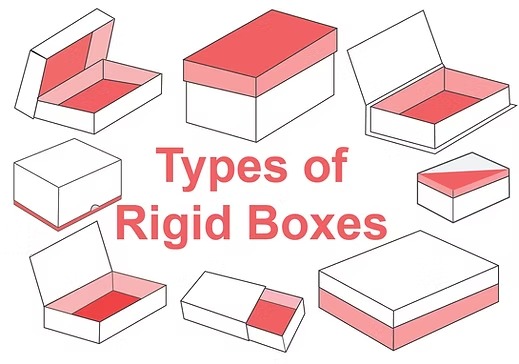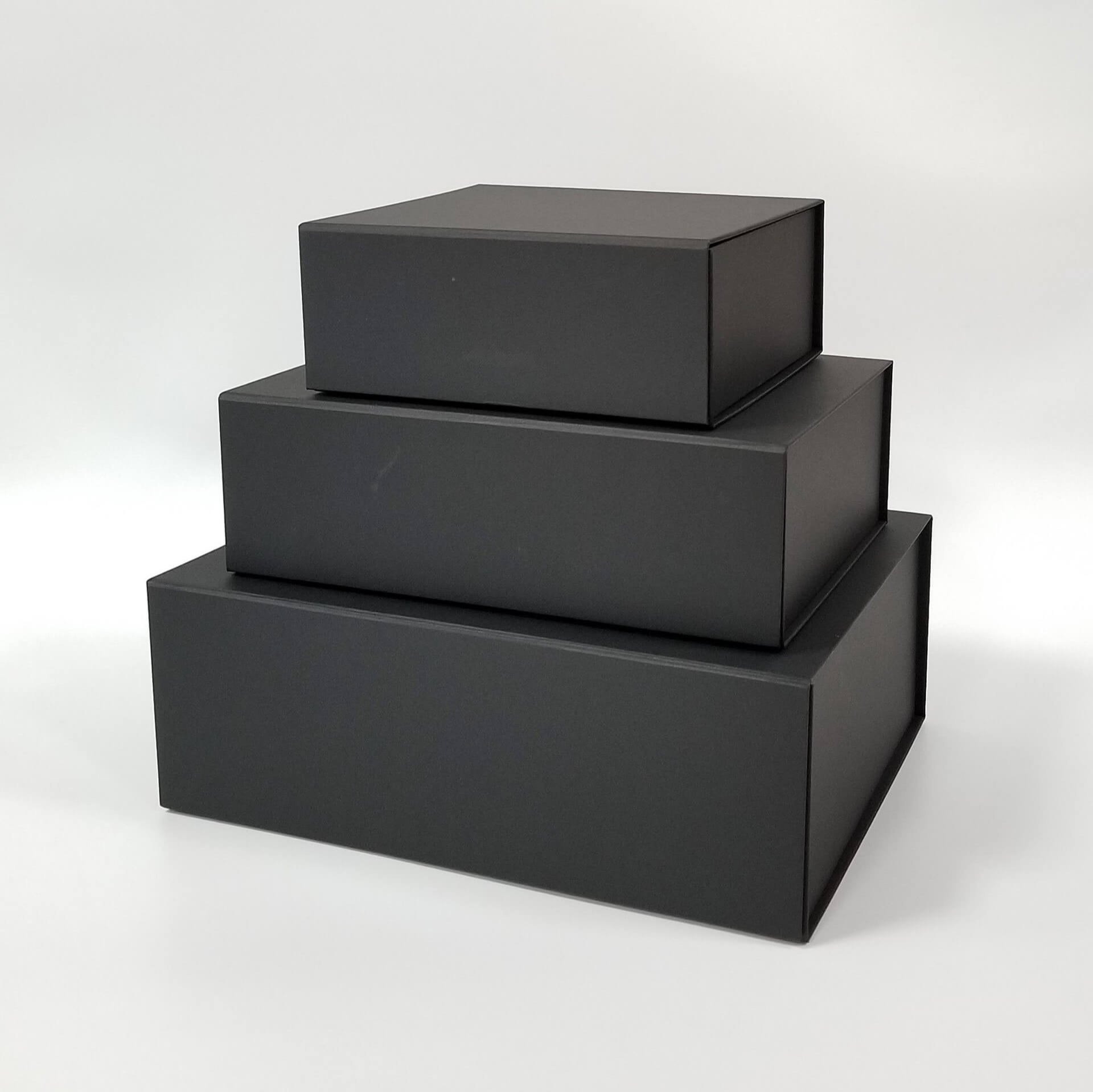Rigid packaging is a popular choice for businesses looking to combine durability with an upscale presentation. But what exactly are the types of rigid packaging available? This guide explores the various forms of rigid packaging, their features, and their applications, helping you decide which option suits your needs. Optimized for the keyword "What are the types of rigid packaging?" this article is crafted to rank well on Google while delivering user-focused, actionable insights.
Introduction to Rigid Packaging
Rigid packaging refers to sturdy, non-flexible containers made from thick paperboard or similar materials. Unlike flexible options like bags or pouches, rigid packaging retains its shape, offering both protection and a premium aesthetic. It's widely used for luxury goods, gifts, and products where branding and unboxing experiences matter.

Understanding the different types of rigid packaging can help you select the right solution for your products—whether it's a jewelry box, a phone case, or a decorative gift box. Let's break down the main types and what makes each unique.
Common Types of Rigid Packaging
Rigid packaging comes in various forms, each designed for specific purposes. Below are the most common types you'll encounter:
Rigid Boxes
Rigid boxes are the cornerstone of rigid packaging. Made from dense paperboard (typically 1mm to 3mm thick), they're often wrapped with decorative materials like paper or fabric for a polished look.
1. Features: High durability, customizable finishes, non-collapsible structure.
2. Uses: Ideal for luxury items like cosmetics, jewelry, electronics, and gift boxes (e.g., shoe boxes, chocolate boxes).
3. Example: A sleek, foil-stamped box for a high-end watch.

Folding Cartons
While technically less rigid than full rigid boxes, folding cartons made from thicker paperboard can still fall under the rigid packaging umbrella. They're pre-scored and foldable but maintain a firm shape once assembled.
1. Features: Lightweight yet sturdy, cost-effective, easy to store flat.
2. Uses: Common for retail packaging like cereal boxes, pharmaceutical products, or small gift items.
3. Example: A sturdy box for a premium tea blend.
Set-Up Boxes
Set-up boxes are pre-assembled rigid boxes with a base and lid, often featuring a two-piece design. They're known for their premium construction and elegant presentation.
1. Features: Pre-formed, no assembly required, often lined with protective materials.
2. Uses: Perfect for high-value items like perfumes, jewelry, or special-edition products.
3. Example: A velvet-lined box for a luxury necklace.
Clamshell Packaging
Clamshell rigid packaging consists of two hinged halves that snap shut, resembling a clamshell. It's typically made from rigid paperboard or plastic-coated board.
1. Features: Secure closure, tamper-evident, visually appealing.
2. Uses: Used for electronics, small gadgets, or collectibles needing display and protection.
3. Example: A phone accessory box with a clear window.
Slipcase Packaging
Slipcases are open-ended rigid sleeves that house a box, book, or product. They add an extra layer of protection and sophistication.
1. Features: Durable, sleek, often paired with an inner rigid box.
2. Uses: Popular for books, notebooks, or premium product sets (e.g., calendars, folders).
3. Example: A hardcover book set with a matching slipcase.
Materials Used in Rigid Packaging
The materials behind rigid packaging play a big role in its functionality and appeal:
1. Paperboard: The primary material, usually 600-1200 GSM (grams per square meter), providing strength and rigidity.
2. Decorative Wraps: Paper, fabric, or leatherette coverings enhance aesthetics and branding.
3. Inserts: Foam, fabric, or molded trays protect contents and elevate the unboxing experience.
These materials allow for extensive customization, from embossing to vibrant printing, making rigid packaging a versatile choice.
Applications of Rigid Packaging
Rigid packaging shines in industries where presentation and protection are paramount. Here are some key applications:
1. Luxury Goods: Jewelry boxes, perfume packaging, and high-end electronics rely on rigid boxes for a premium feel.
2. Gift Packaging: Items like mooncake boxes, flower boxes, and chocolate boxes use rigid packaging for festive appeal.
3. Retail Displays: Rigid boxes double as shelf-ready displays for cosmetics, mobile phones, and more.
4. Stationery: Notebooks, folders, and calendars often use slipcases or rigid boxes for durability and style.
From small businesses to global brands, rigid packaging adapts to diverse needs, balancing form and function.
Benefits of Rigid Packaging
Why choose rigid packaging? Here are its standout advantages:
1. Durability: Protects contents from damage, even under pressure.
2. Branding: Offers a canvas for logos, colors, and finishes that elevate brand perception.
3. Customer Experience: Creates a memorable unboxing moment, boosting satisfaction.
4. Reusability: Many rigid boxes are kept by consumers for storage, extending their lifecycle.
These benefits make rigid packaging a worthwhile investment for products aiming to stand out.
Choosing the Right Rigid Packaging
Selecting the best type of rigid packaging depends on your goals:
1. Product Value: High-end items benefit from set-up boxes or rigid boxes with luxurious finishes.
2. Budget: Folding cartons offer a cost-effective rigid option, while slipcases add value to mid-range products.
3. Purpose: Clamshells suit display needs, while rigid boxes excel in gift scenarios.
4. Customization: Consider how much branding or design flexibility you need.
Think about your product's journey—from production to the customer's hands—and match it with the right rigid packaging type.
Conclusion
So, what are the types of rigid packaging? From rigid boxes and set-up boxes to clamshells and slipcases, each type offers distinct features tailored to specific needs. Whether you're packaging luxury goods, gifts, or retail items, understanding these options ensures you pick the perfect fit for your product.
At Dongguan Pinchuang Automation Equipment Co., Ltd., we specialize in manufacturing equipment for rigid packaging production, such as our Automatic Rigid Box Making Machines. Our innovative solutions help businesses create high-quality packaging efficiently. Explore our offerings to see how we can support your packaging needs with precision and reliability.
 English
English






